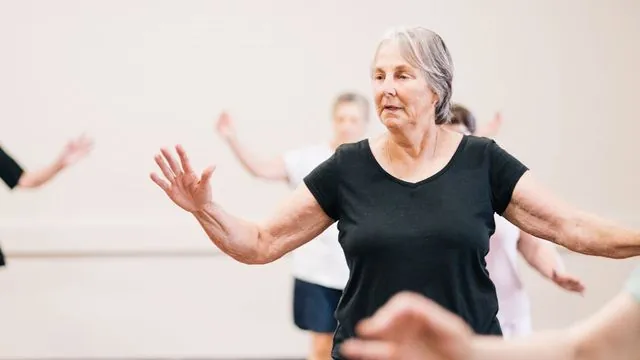
Revitalize Your Mind: How Cardio Fitness Boosts Cognitive Function in Older Adults!
2025-01-08
Author: Nur
Research recently published in the British Journal of Sports Medicine reveals a powerful connection between higher cardiorespiratory fitness and the preservation of cognitive abilities in older adults. This groundbreaking study highlights that maintaining good cardiovascular health can help stave off age-related cognitive decline, regardless of factors such as age or the presence of the high-risk APOE4 gene associated with Alzheimer's disease.
Cardiorespiratory fitness, a measure of how well your body can supply oxygen during prolonged physical activity, can be significantly improved through regular aerobic exercises. While previous studies have hinted at its benefits in reducing dementia risks, this latest research dives deep into the specific cognitive functions that cardio fitness influences.
In the study involving 648 cognitively healthy participants aged 65 to 80 years (average age: 69), researchers established a clear link between fitness levels and cognitive performance across five crucial domains: processing speed, working memory, visuospatial processing, episodic memory, and executive function/attentional control. Participants underwent a graded treadmill running test to measure their maximum oxygen consumption (VO2max), with results suggesting that higher fitness levels corresponded to enhanced cognitive abilities.
While most participants were women with an average of 16 years of education, notable divisions in cognitive performance were observed. For instance, participants with higher cardiorespiratory fitness showed superior cognitive performance irrespective of their age and whether they carried the APOE4 gene. Interestingly, female participants, those with fewer educational qualifications, and individuals on beta-blockers demonstrated even more pronounced cognitive benefits in processing speed and executive function.
It's crucial to note that while this study establishes a robust association, it does not imply direct causation. Moreover, the research points out that not all cognitive domains were covered—language-related skills were notably absent from the assessments. The sample was also somewhat restricted, as most participants were relatively sedentary.
The researchers speculate that improved aerobic fitness could enhance cerebral blood flow, lower oxidative stress, promote the formation of new synapses, and boost neuron growth and neurotransmitter activity. Additionally, the mood-lifting and fatigue-reducing benefits of physical activity may indirectly support cognitive health.
In conclusion, increasing your cardiorespiratory fitness could be one of the best investments you make for your brain health as you age. The findings emphasize the importance of targeted aerobic exercise programs that may help preserve multidimensional cognitive functions in older adults. Staying active could be the key to unlocking better mental aging—so put on those running shoes and revive both your body and mind!


 Brasil (PT)
Brasil (PT)
 Canada (EN)
Canada (EN)
 Chile (ES)
Chile (ES)
 Česko (CS)
Česko (CS)
 대한민국 (KO)
대한민국 (KO)
 España (ES)
España (ES)
 France (FR)
France (FR)
 Hong Kong (EN)
Hong Kong (EN)
 Italia (IT)
Italia (IT)
 日本 (JA)
日本 (JA)
 Magyarország (HU)
Magyarország (HU)
 Norge (NO)
Norge (NO)
 Polska (PL)
Polska (PL)
 Schweiz (DE)
Schweiz (DE)
 Singapore (EN)
Singapore (EN)
 Sverige (SV)
Sverige (SV)
 Suomi (FI)
Suomi (FI)
 Türkiye (TR)
Türkiye (TR)
 الإمارات العربية المتحدة (AR)
الإمارات العربية المتحدة (AR)